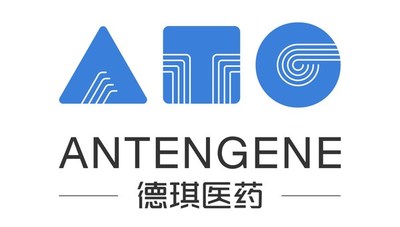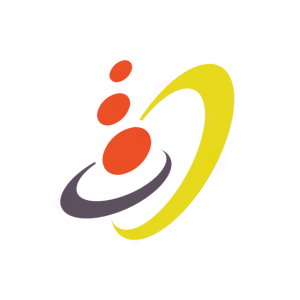Antengene's Partner Karyopharm Therapeutics Announces Updated Data of Eltanexor in Patients with Hypomethylating Agent Refractory MDS
Karyopharm Therapeutics (KPTI) reported positive Phase I/II results for eltanexor, a treatment for hypomethylating agent refractory myelodysplastic syndrome (MDS), during the ASCO Annual Meeting. Out of 15 evaluable patients, 47% achieved marrow complete response (mCR), and the total disease control rate was 80%. Notably, patients with mCR had a median overall survival (mOS) of 11.86 months, compared to 8.67 months for those without mCR. Eltanexor may offer a more tolerable option compared to first-generation inhibitors, with trials ongoing in Asia Pacific markets.
- 47% of evaluable patients achieved marrow complete response (mCR).
- Total disease control rate reached 80%.
- Median overall survival for mCR patients was 11.86 months.
- None.
Insights
Analyzing...
--Of the 15 patients evaluable for efficacy, 7 (
--Patients with mCR had longer mOS than patients without mCR or with PD--
SHANGHAI and HONG KONG, June 8, 2021 /PRNewswire/ -- Antengene's Partner, Karyopharm Therapeutics Inc. (Nasdaq: KPTI), announced updated data of eltanexor for the treatment of patients with hypomethylating agent (HMA) refractory myelodysplastic syndrome (MDS) at the 2021 American Society of Clinical Oncology (ASCO) Annual Meeting.
This Phase I/II study evaluated single-agent eltanexor in patients with higher-risk MDS, ie, high-risk or intermediate-2 MDS by the International Prognostic Scoring System (IPSS) and
Out of the 20 patients enrolled, 15 patients were evaluable for efficacy and constitute the population studied in this analysis. Of the 15 patients evaluable for efficacy, 7 (
Patients with MDS refractory to HMAs have limited therapeutic options and a dismal prognosis with a median overall survival (mOS) of 4-6 months. Eltanexor is a next-generation, oral XPO1 inhibitor that showed anti-tumor activity and lower central nervous system penetration compared to selinexor, the first-in-class XPO1 inhibitor, in nonclinical models. It was hypothesized that eltanexor could be dosed more frequently than selinexor with a lower incidence of centrally mediated nausea.
Antengene has entered into a strategic collaboration with Karyopharm, through which it obtained the rights to develop and commercialize four drug candidates including eltanexor in 17 Asia Pacific markets. Antengene is currently conducting clinical trials of eltanexor in patients with MDS or advanced solid tumors in China. Of these, the Phase I/II trial of eltanexor for the treatment of MDS (the HATCH trial) has already dosed its first patient.
About Eltanexor (ATG-016)
Eltanexor is a next-generation selective inhibitor of nuclear export (SINE) compound. In preclinical models, compared to the first-generation SINE compound, eltanexor demonstrated lower blood-brain barrier penetration and broader therapeutic window which allows more frequent dosing and a longer period of exposure at higher levels with better tolerability. Therefore, eltanexor may be used to target a broader range of indications.
About Antengene
Antengene Corporation Limited ("Antengene", SEHK: 6996.HK) is a leading clinical-stage R&D driven biopharmaceutical company focused on innovative medicines for oncology and other life-threatening diseases. Antengene aims to provide the most advanced anti-cancer drugs to patients in the Asia Pacific Region and around the world. Since its establishment in 2017, Antengene has built a broad and expanding pipeline of clinical and pre-clinical stage assets through partnerships as well as in-house drug discovery, and obtained 15 investigational new drug (IND) approvals and submitted 5 new drug applications (NDA) in multiple markets in Asia Pacific. Antengene's vision is to "Treat Patients Beyond Borders". Antengene is focused on and committed to addressing significant unmet medical needs by discovering, developing and commercializing first-in-class/best-in-class therapeutics.
Forward-looking statements
The forward-looking statements made in this article relate only to the events or information as of the date on which the statements are made in this article. Except as required by law, we undertake no obligation to update or revise publicly any forward-looking statements, whether as a result of new information, future events or otherwise, after the date on which the statements are made or to reflect the occurrence of unanticipated events. You should read this article completely and with the understanding that our actual future results or performance may be materially different from what we expect. In this article, statements of, or references to, our intentions or those of any of our Directors or our Company are made as of the date of this article. Any of these intentions may alter in light of future development.
![]() View original content to download multimedia:http://www.prnewswire.com/news-releases/antengenes-partner-karyopharm-therapeutics-announces-updated-data-of-eltanexor-in-patients-with-hypomethylating-agent-refractory-mds-301308428.html
View original content to download multimedia:http://www.prnewswire.com/news-releases/antengenes-partner-karyopharm-therapeutics-announces-updated-data-of-eltanexor-in-patients-with-hypomethylating-agent-refractory-mds-301308428.html
SOURCE Antengene Corporation Limited








